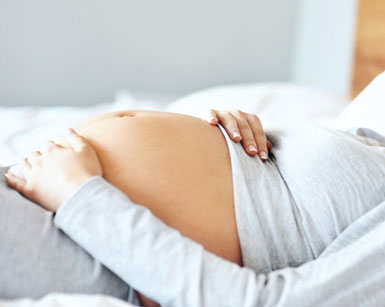The lowdown on endometriosis
I think it’s safe to say that none of us […]

For those of you who may not know, the lining of the uterus is known as the endometrium and consists of endometrial glands which build up and shed monthly—this is your period. Endometriosis occurs when these endometrial glands are located outside of the uterus, most commonly in the ovaries, fallopian tubes or other places throughout the abdomen or pelvis.
Endometriosis is a common and benign disorder, and rarely affects girls too young to have begun their period yet or postmenopausal women. The exact cause has not been pinpointed, though there are several theories of how the tissue is transported. Retrograde menstruation (tissue movement through the fallopian tubes) and travel through the lymph or blood systems are among the top contenders, and genetics probably factor in there.
In severe cases, endometriosis could cause infertility. Symptoms more often include pelvic pain and/or abnormal bleeding. Because symptoms are diverse and rather vague, and some women may not show any symptoms, it is difficult to determine the prevalence of the condition among the general population. There are also a number of other conditions with similar symptoms and signs. A doctor’s evaluation would determine whether or not to be concerned. She may perform either a laparoscopy (using a small camera to check out what’s going on in your abdomen or pelvis) or a laparotomy (a small incision) to confirm a diagnosis.
If you’re diagnosed with endometriosis, don’t fret. You’re not alone. This disease affects over 6 million women in the US, and millions more across the globe. You and your doctor can discuss the options available and create an individualized management plan designed specifically to relieve your symptoms. Your doctor may suggest analgesics (like Tylenol or Advil) for short-term relief, or hormones found in oral contraceptives (like the birth control pill) to ease the pain. If it is more serious, your doctor could use an injection to give a kind of temporary menopause, stopping your periods for the time being to allow the endometriosis implants to shrink up. The condition has also been known to improve during pregnancy. Surgery—more conservative (the organs stay) or definitive (the organs go)—could ultimately end all symptoms if the condition escalates. However you choose to handle it, know that you are fortunate to have the benefits of modern technology and medical expertise on your side. We’re rooting for you, all the way!







